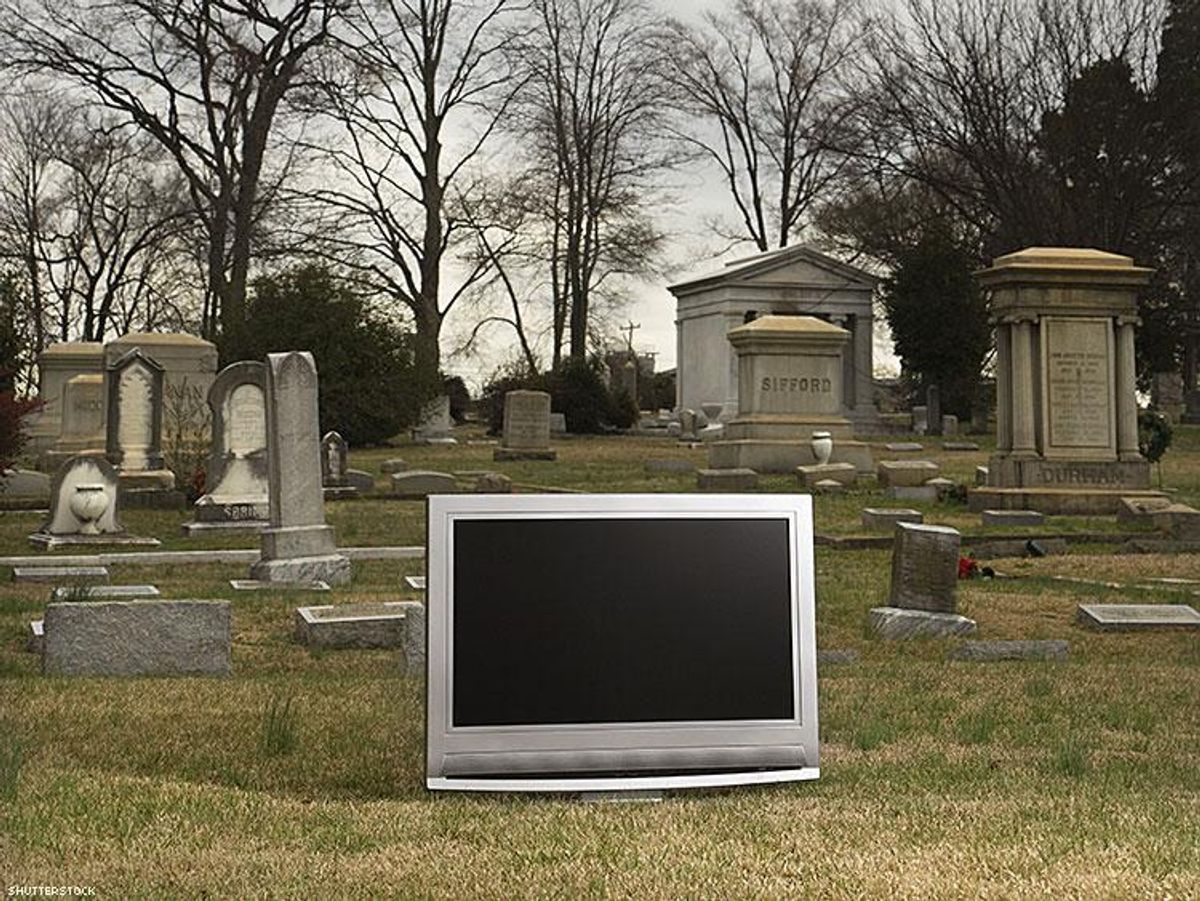Voices
I'll Mourn Dead Celebrities If I Want To

Getting emotional over people like Carrie Fisher and George Michael isn't just a silly distraction, according to Amanda Kerri.
January 05 2017 12:30 AM EST
October 31 2024 6:55 AM EST
By continuing to use our site, you agree to our Private Policy and Terms of Use.

Getting emotional over people like Carrie Fisher and George Michael isn't just a silly distraction, according to Amanda Kerri.
When Ludwig van Beethoven, the famed composer, died in 1827, his funeral was said to have drawn anywhere between 10,000 and 30,000 onlookers. The theaters of Vienna closed, and some of Austria's greatest writers, musicians, and composers took park in the service. Beethoven's friends had to place a guard at his grave because of rumors that a substantial offer was made for his head.
When Victor Hugo, the French writer, statesman, and social activist, died in 1885, over 2 million people were said to have attended what was probably the largest funeral in France up to that point. He is buried in the Pantheon in Paris, a place reserved only for people recognized by the French government for their contributions to the nation. When the actor Rudolph Valentino was buried, a riot broke out as fans clamored to see his body one more time. The death of singer Carmen Miranda led the Brazilian government to declare a period of mourning, and over half a million people walked in the funeral procession. The Egyptian singer Umm Kulthum's funeral had attendance of 4 million, surpassing that of President Nasser, the man who helped overthrow British rule of the country and create a post-colonial identity for Arabs all throughout the Middle East. The crowds carried her body through the streets of Cairo in a procession that lasted for hours.
Celebrity deaths and mass mourning are not new to our world, and their funerals often exceed the pomp and circumstance of a state funeral held for the greatest of leaders. It's easy to think in our modern lives that such massive outpourings of grief are all part of our media-obsessed, shallow culture -- that we've become so obsessed with the lives of the rich and famous that we'll follow them to their graves, that we'll weep for people we never knew who lived decadent, hedonistic lives of wealth and privilege, some of whom never shed a tear for the poor and downtrodden. Those who think that is the sole reason people attach themselves to these departed celebrities show their disdain with cruel, heartless jokes at their expense. That, or they weep for one celebrity they liked but ridicule emotions for other deceased stars as shallow and childish.
I have never gotten extremely emotional over any celebrity death. I cried when Johnny Cash died, especially when his cover of "Hurt" seemed to play on a loop. To be fair, though, that song makes me cry anyway. I only recently thought about why it particularly made me cry, rather than any number of other songs. In the song, he's reflecting on how pain is the only feeling he has left, that his actions have left him alone amid the ruins of his life, and those he cares about have been driven away. For a lot of personal reasons, this song just guts me every time I hear it, and I cannot help but choke up and blink away tears. At the time the song was popular, I was in a dark place, and I felt a deep connection to it.
But that's why we feel for these actors, musicians, and writers when they die -- we're connected to them in a way that is intensely personal because of their work. Art is an abstract that can evoke emotions in one person and leave another flat, and these artists have touched many people deeply through one means or another. Through their celebrations of life, depictions of pain, or demonstrations of strength, people find a connection, a sense that they're not alone in this world. Their artistry can also transcend that common connection to other humans that we all seek and become manifest as a sense of pride in who they are. Artists like David Bowie provided for many a confirmation that their feeling of being different was something not to be ashamed of, but celebrated. George Michael's music took on an extra resonance for those who felt trapped in the secret of their sexuality. Muhammad Ali was a voice of protest and strength for many minorities during a time of self-awakening and empowerment. Robin Williams served as the quintessential sad clown, able to laugh in the face of crushing depression. Carrie Fisher exemplified the strong, independent woman. Kurt Cobain personified youthful alienation, while John Lennon embodied dreamy hopefulness.
Celebrities become more than their art, their work, and their actions. They become a social glue around which a community of lost souls can find an anchor and a touch of togetherness. Being who they are, and because of their gifts, they allow people to create a new identity of community and even of family. They become an idea -- the idea of a strong, free-thinking black man, a fiercely independent woman, an openly proud and unashamed gay man. They help create a culture for a nation that had been suppressed by outsiders, an assertion of identity through shared experiences, and that identity becomes a way to identify who we are in this world. Beethoven is still considered a crown jewel of German artistry. Victor Hugo is synonymous with France in his life as well as his works. Carmen Miranda still evokes the festive and vibrant culture of Brazil, and Umm Kulthum is considered the most prominent Arab woman in contemporary history.
Celebrities, the truly great ones who change lives and ways of thinking, the ones who help shape our identities, become more than themselves and their works; they become an avatar of our feelings of who we are. Mourning the loss of a celebrity whose life and works helped form part of who we are isn't mourning the loss of a materialistic icon, but the recognition of a feeling that we lost a part of ourselves.
